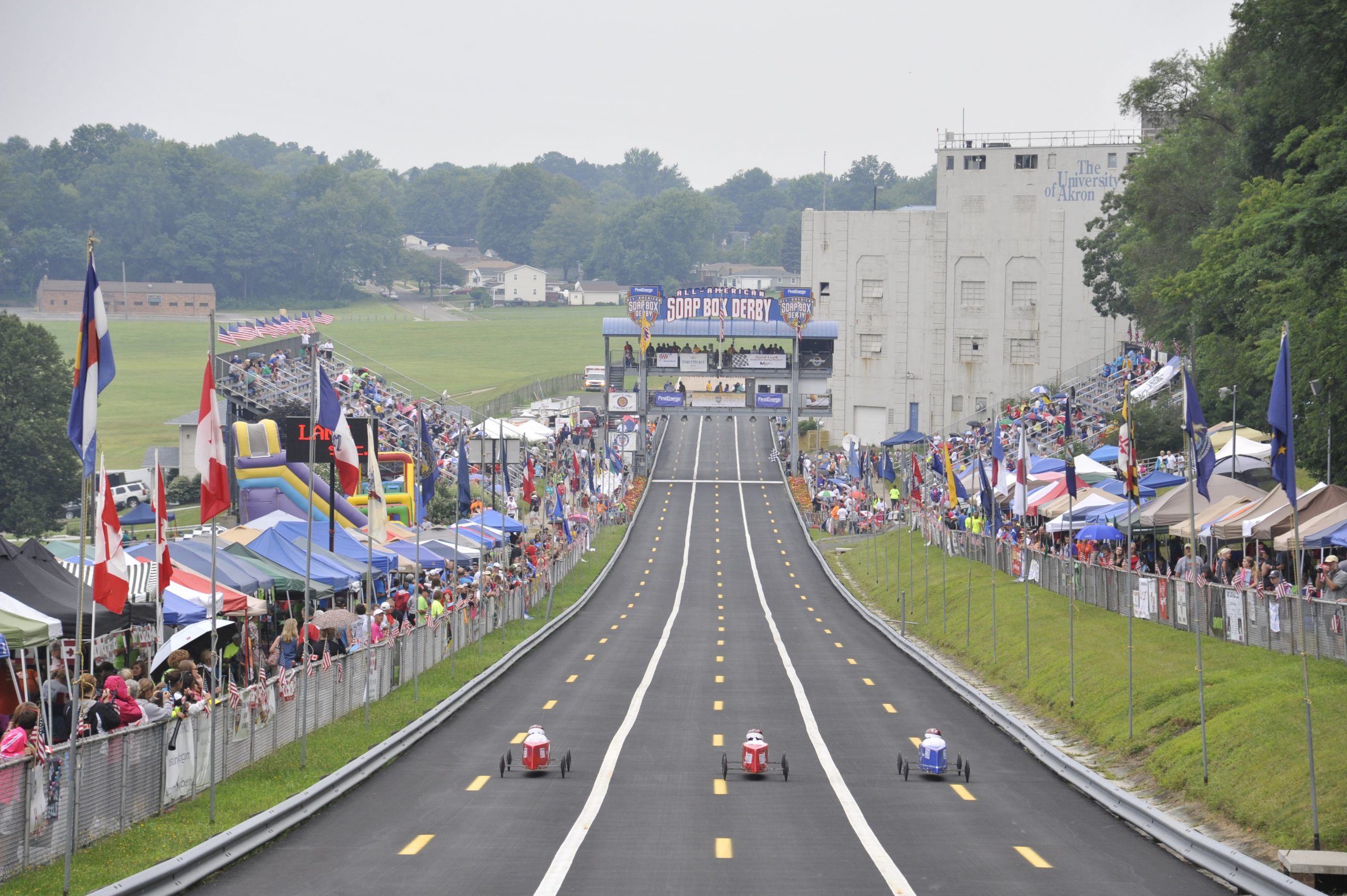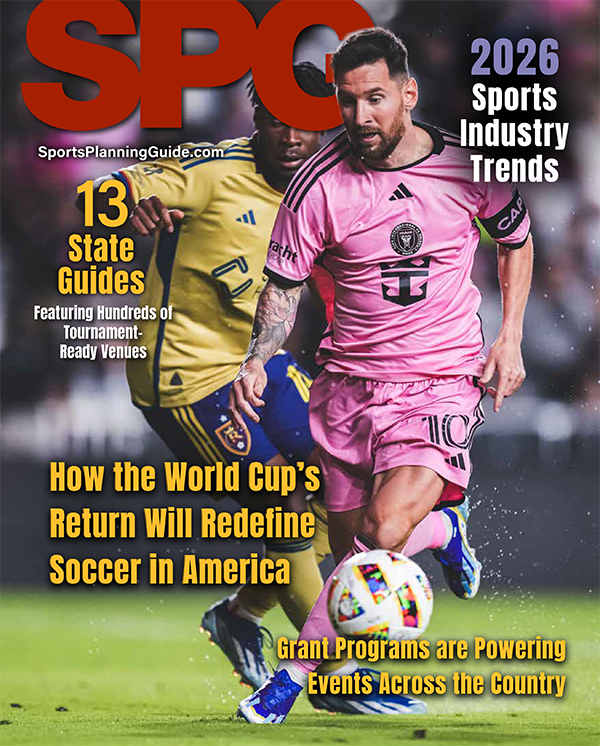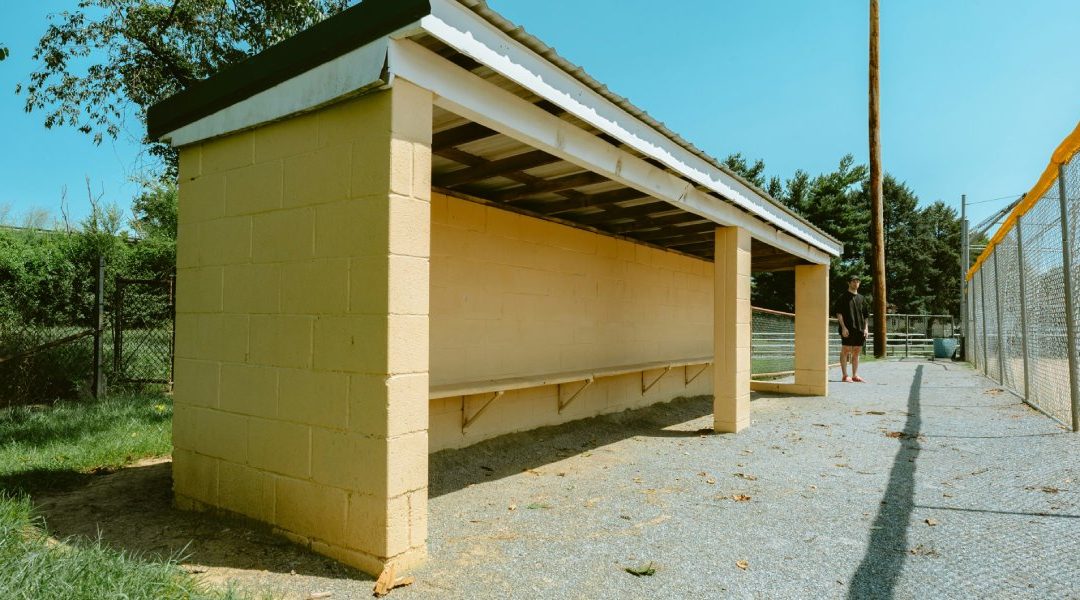Derby aims to preserve traditional collaboration and youth education
The 83rd FirstEnergy All-American Soap Box Derby is the latest casualty of the COVID-19 pandemic, leaving the city of Akron and a potential 400 participants at a loss. However, the organization is looking to persevere and preserve the culture of the derby for a 2021 revival.
The Soap Box Derby was established in Ohio in 1934 as an outlet for children to compete with their homemade gravity-powered race cars. Since then, it has spread internationally and evolved into a comprehensive youth program supporting leadership, collaboration and STEM curriculum.
The suspension of 2020’s All-American Soap Box Derby marks the first year without the competition since World War II. Mark Gerberich, president and CEO of International Soap Box Derby, said the decision to cancel was extremely difficult, but the correct move.
“Not having a world championship for kids is like somebody missing their senior year of high school,” Gerberich said. “All these kids that worked so hard to get here, it’s really not an easy decision to make. When you are talking about safety being the No. 1 priority, you could not live with somebody getting sick, taking that back home and something happening to their family.”
Organizational chapters throughout the world hold preliminary races each year so competitors can earn local and regional titles. These racers are invited to compete in the FirstEnergy All-American Soap Box Derby in Akron, Ohio, where a world champion is crowned.
The preliminary races had all been suspended through April due to the rapid COVID-19 spread. Therefore, the July championship had not been able to garner any qualifiers. Consequently, it was uncertain if communities would be able to safely organize local races before the championship.
Gerberech hopes a COVID-19 solution is developed so the world can return to the traditional togetherness of sporting events.
“We are going to have to play by the rules of what this virus does (before re-starting the soapbox derby),” Gerberech said. “Part of sports is the camaraderie. What’s fun about going to a Cubs or White Sox game is high-fiving the person next to you, spilling beer all over and having a great time.”
The championship derby is much more than a singular race. Festivities for the event take place throughout an entire week, including a welcome ceremony, parade, smaller races and an awards ceremony.
Had the derby occurred, social distancing guidelines and venue closures would have prevented these additional activities from happening. This loss of the derby’s fan support and culture played into the decision to cancel because the traditional experience of the event would have been diminished.
“The big part of our world championship is the pomp and circumstance around the event,” Gerberech said. “All of a sudden, the race wasn’t going to be what a world championship race is anyway. It was just going to turn into a regular race.”
Akron is a large Ohio city known for diverse architecture, rubber manufacturing and, most famously, the Soap Box Derby. The race had an annual economic impact of approximately $5 million on the city. The loss of this revenue due to cancellation has had an extensive fiscal effect on Akron and the larger industry.
“From the soapbox derby point of view, we haven’t held races around the country since March,” Gerberech said. “We get sanction fees from race cities and those have to be refunded or moved to next year so that impact (of the loss of funds) is huge to us. Also, when people aren’t racing, they aren’t buying parts (for the cars), and parts sales are down as well.”
Nonetheless, Soap Box Derby has remained committed to its mission of youth education and development by starting an at-home program. The organization compiled three purchasable kits so families can hone STEM skills in a safe space.
The kits contain supplies for various projects, such as the construction of scale model cars and codable digiRacers. One kit even provides materials and instructions for the assembly of a full-size Soap Box Derby vehicle.
“A big part of who we are is the education side,” Gerberich said. “We’ve taken our large car and created a model car 1/13 the size and created an education program around that. We’re integrating the racing with our education and it’s been a really good thing for the Soap Box Derby.”
Until races begin again, the organization is keeping its traditional values of family collaboration and meaningful experience close to the surface.
“Soapbox Derby is different in the day and age we’re living, where parents want to drop their kids off at soccer practice and run errands,” Gerberech said. “The family helps put the car together. One person wins and the whole family wins.”
By Zoe Strozewski




